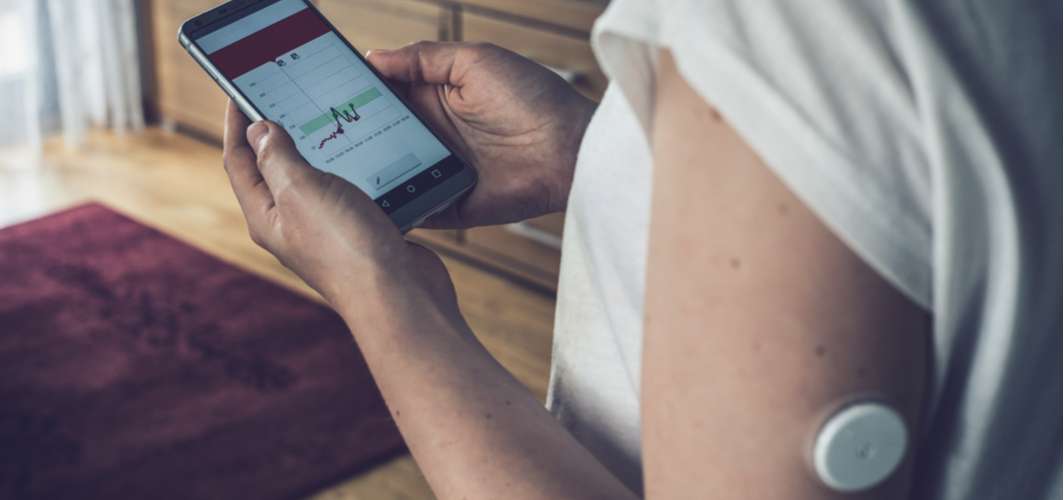Diabetes Management
Dates and Diabetes: Nutritional Insights and Healthy Consumption
2 min read
By Apollo 24|7, Published on - 23 May 2024, Updated on - 24 May 2024
Share this article
0
0 like
.jpg?tr=q-80)
If you're managing diabetes and are curious about whether dates should be a part of your diet, you're in the right place. Many individuals with diabetes worry about consuming dates due to their sweetness, but you might be surprised to learn that they can be beneficial. Let's dive into their nutritional values and best consumption methods.
Understanding the Sweetness of Dates
Despite being high in natural sugars, dates have a low to medium glycaemic index (GI). GI is a measure of how quickly a food can raise your blood sugar levels. The low GI of dates ensures that their sugars are absorbed gradually when eaten in moderation, helping to prevent abrupt spikes in blood glucose levels. However, due to their carbohydrate content, portion control is vital.
How to Consume Dates Wisely
To prevent blood sugar spikes, it's better to consume wet dates in moderation and with the right combinations. One or two medium-sized dates per day are generally considered safe for individuals with controlled diabetes. Pairing them with nuts as one snack in the day can help balance out the sugar and prevent sudden increases in glucose levels. Remember, portion control is key to everything.
The Nutritional Breakdown of Dates
Besides being naturally sweet, wet dates are also packed with beneficial nutrients. They are an excellent source of fibre, which slows glucose absorption and helps control blood sugar levels. Dates also provide essential minerals like potassium and magnesium and are rich in antioxidants that can enhance your overall health.
Individual Considerations
While many individuals with diabetes can safely enjoy dates, it's essential to remember that everyone's body responds differently to food. Therefore, it's always recommended to consult your doctor before adding dates or any new food to your diet plan.
Managing diabetes isn't always easy, making informed food choices can help you enjoy a wide variety of foods while keeping your health on track. Including dates in your diet might require some forethought and moderation, but it is well worth the effort for the sweet reward.
Diabetes Management
Consult Top Diabetologists
View AllLeave Comment
Recommended for you

Diabetes Management
Significance of Oral Care for People with Diabetes
Diabetes and gum disease are interconnected, with high blood sugar levels increasing the risk of gum disease. The presence of sugar in saliva promotes the growth of harmful bacteria, leading to plaque formation, cavities, and gum diseases. Gum disease, in turn, can negatively impact blood sugar control, creating a cycle of worsening oral and diabetic health.

Diabetes Management
Somogyi Effect: What Does That Early Morning Blood Sugar Spike Mean?
The Somogyi effect refers to a phenomenon where blood sugar levels drop too low during the night, triggering a compensatory release of hormones that raise blood sugar levels. This can lead to a serious blood sugar spike in the early morning. Some of the symptoms are night sweats, nightmares, evening weakness, and unexplained high morning blood sugar levels.

Diabetes Management
Tips To Recognize And Manage Diabetic Emergencies
This article discusses how to recognize and respond to diabetic emergencies, specifically hypoglycaemia and hyperglycaemia. It provides information on the symptoms, causes and treatment of these conditions to help individuals with diabetes manage their health effectively.
Subscribe
Sign up for our free Health Library Daily Newsletter
Get doctor-approved health tips, news, and more.
Visual Stories

8 Fruits That are Incredibly Healthy for Diabetes
Tap to continue exploring
Recommended for you

Diabetes Management
Significance of Oral Care for People with Diabetes
Diabetes and gum disease are interconnected, with high blood sugar levels increasing the risk of gum disease. The presence of sugar in saliva promotes the growth of harmful bacteria, leading to plaque formation, cavities, and gum diseases. Gum disease, in turn, can negatively impact blood sugar control, creating a cycle of worsening oral and diabetic health.

Diabetes Management
Somogyi Effect: What Does That Early Morning Blood Sugar Spike Mean?
The Somogyi effect refers to a phenomenon where blood sugar levels drop too low during the night, triggering a compensatory release of hormones that raise blood sugar levels. This can lead to a serious blood sugar spike in the early morning. Some of the symptoms are night sweats, nightmares, evening weakness, and unexplained high morning blood sugar levels.

Diabetes Management
Tips To Recognize And Manage Diabetic Emergencies
This article discusses how to recognize and respond to diabetic emergencies, specifically hypoglycaemia and hyperglycaemia. It provides information on the symptoms, causes and treatment of these conditions to help individuals with diabetes manage their health effectively.


